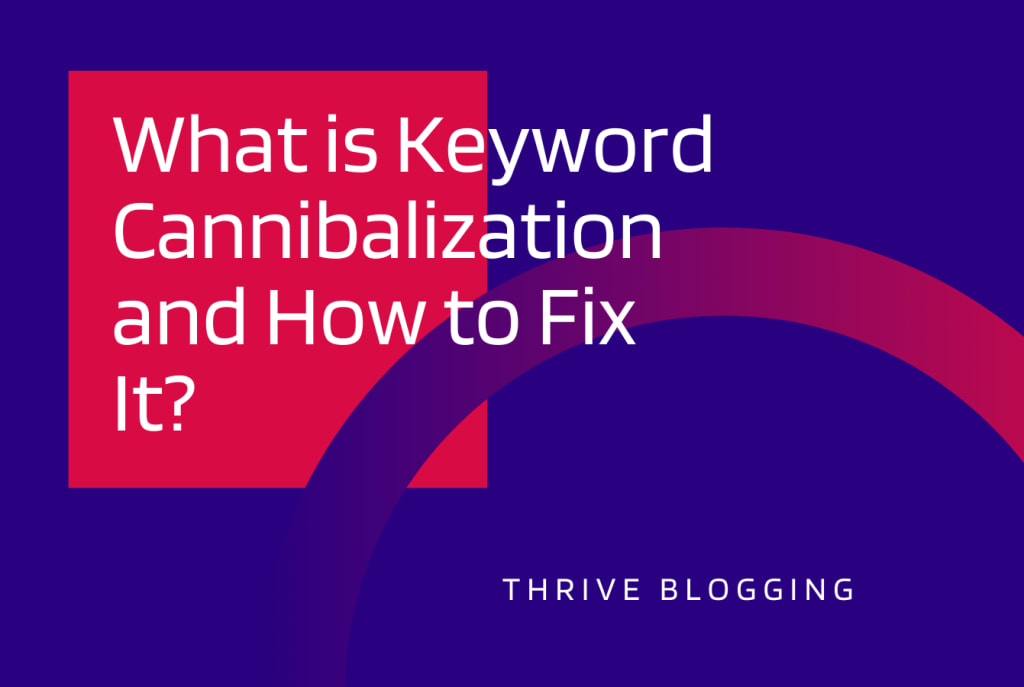What is Keyword Cannibalization and How to Fix It?
Learn here how to avoid Keyword Cannibalization.

If you spend any measurable time in SEO, you've probably heard the phrase "cannibalizing" at some point in your career. It occurs when two or more pages in the leaderboard compete for the same keyword query. This is because several blog posts or pages on your site that compete with Google have pages that cover similar topics or are optimized for identical keywords.
Cannibalization occurs when two or more pages have metadata (meta, title, description, etc.) that target the same or very similar keywords. Cannibalizations occur when three pages in the rankings compete for a keyword query that targets exactly the same keywords as a single blog entry or page on your site. Cannibalization occurs when two (or more) pages have metadata or meta - titles or descriptions that target the same or very similar keywords.
The common view is that keyword cannibalization occurs when multiple pages target, compete with, or injure the same keyword. A sign of this is when a row is present on a diagram, which means that one keyword competes with another keyword. The problem of keyword cannibalization starts when someone finds a clinch.
Simply put, it occurs when multiple pages on a website primarily target the same keyword or theme. Cannibalization of the keyword has its roots in the fact that two or more different pages of the website are positioned in a similar place, for example on the front page of a page or on one of its pages.
If you have several pages that target the same keyword, you can use the canonical tag to tell which page you want to rank for each keyword. Note that cannibalization of keywords can also occur if the meta-information in the title tag appears to target the same keyword (check this as well). If you identify pages in your metadata that seem to overlap or that somehow target the same or very similar keywords, you need to decide which primary page is suitable for which keyword or keyword group and reoptimize the competing pages. Once you have identified pages with overlapping metadata or multiple pages, all of which are aligned with the same keyword and somehow overlap or target the same keyword, you need a way to decide which of your primary pages is the keyword in which keywords are grouped.
If you show multiple URLs for the same keyword, this means that they are subject to keyword cannibalization. If you believe you are cannibalizing, you will need to reoptimize your primary pages for each of the keywords you believe have been cannibalized. Once you have identified a problem with the cannibalization of keywords, all you have to do is search your website for this keyword.
This may not sound like a big deal, but there is definitely a problem with the cannibalization of keywords: search engines are not able to decide which pages should rank for which keywords. Google searches your site and considers your pages relevant to each keyword. It does not select the pages it considers most valuable when the keywords have been cannibalized, leaving you at the mercy of the search engine. When multiple pages search for the same keywords, Google knows which page is more relevant to a particular search query. For this reason, cannibalizing keywords can harm your business by filling them all with the same keywords at once, which then dilutes quality and does not deliver the desired results.
There are many ways to prevent the cannibalization of keywords, but the best are well thought out content strategies, including SEO and keyword planning. This simple method would help you diagnose and solve the cannibalization of keywords at the same time, and ensure that you have keyword content optimized for the search engine. Cannibalizing keywords can be solved by finding duplication of keywords, combining and deleting content to ensure that the most relevant content in Google search results is given the highest possible placement for that keyword.
To avoid cannibalizing keywords, list each page on your website in a table of the keywords you are looking for. As you can see in the example above, if a keyword contains more than one word, Google will show you the page that ranks that word.
If you see multiple pages on your website listed in the SERP near one or the same keyword, you may have a cannibalization problem. SERPs by putting a keyword on two or more pages in a SERP and then cannibalizing that keyword from one page to the other.
This is keyword cannibalization, which creates an old and new page rank that has the same keyword. If you create multiple pages and they have a bad rank, you can determine whether the rank is the result of keyword cannibalization. This is because it connects the older and newer pages in your rank, which both have the same keyword. Some companies even create multiple pages with the same keywords to try to find a page for that keyword, but they don't.
About the Creator
Ravi Kunvariya
I am a Blogger and an SEO expert. I help bloggers to increase authority of their site and help them improve ranking in Google search.
You can see my work at
https://www.thriveblogging.com/






Comments
There are no comments for this story
Be the first to respond and start the conversation.